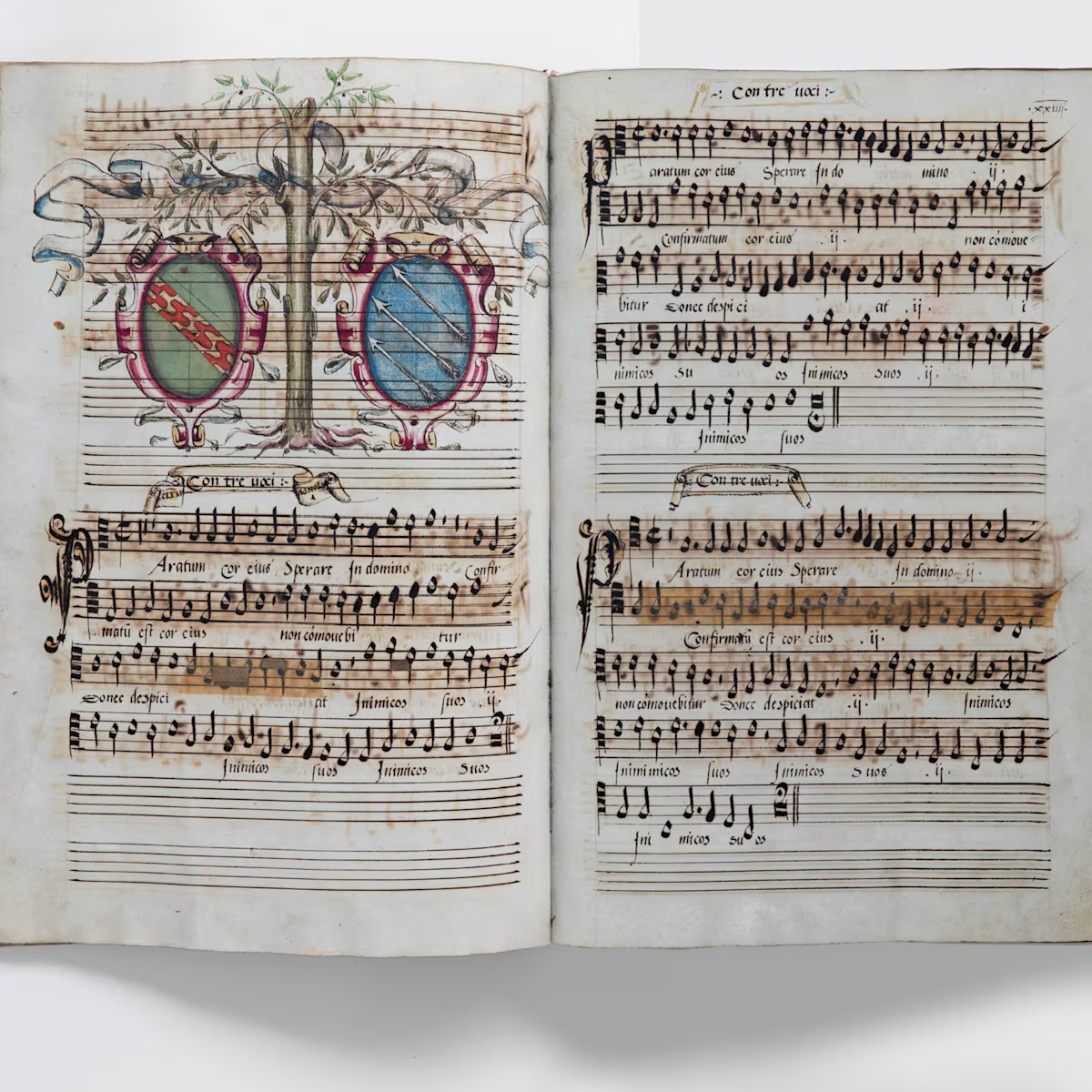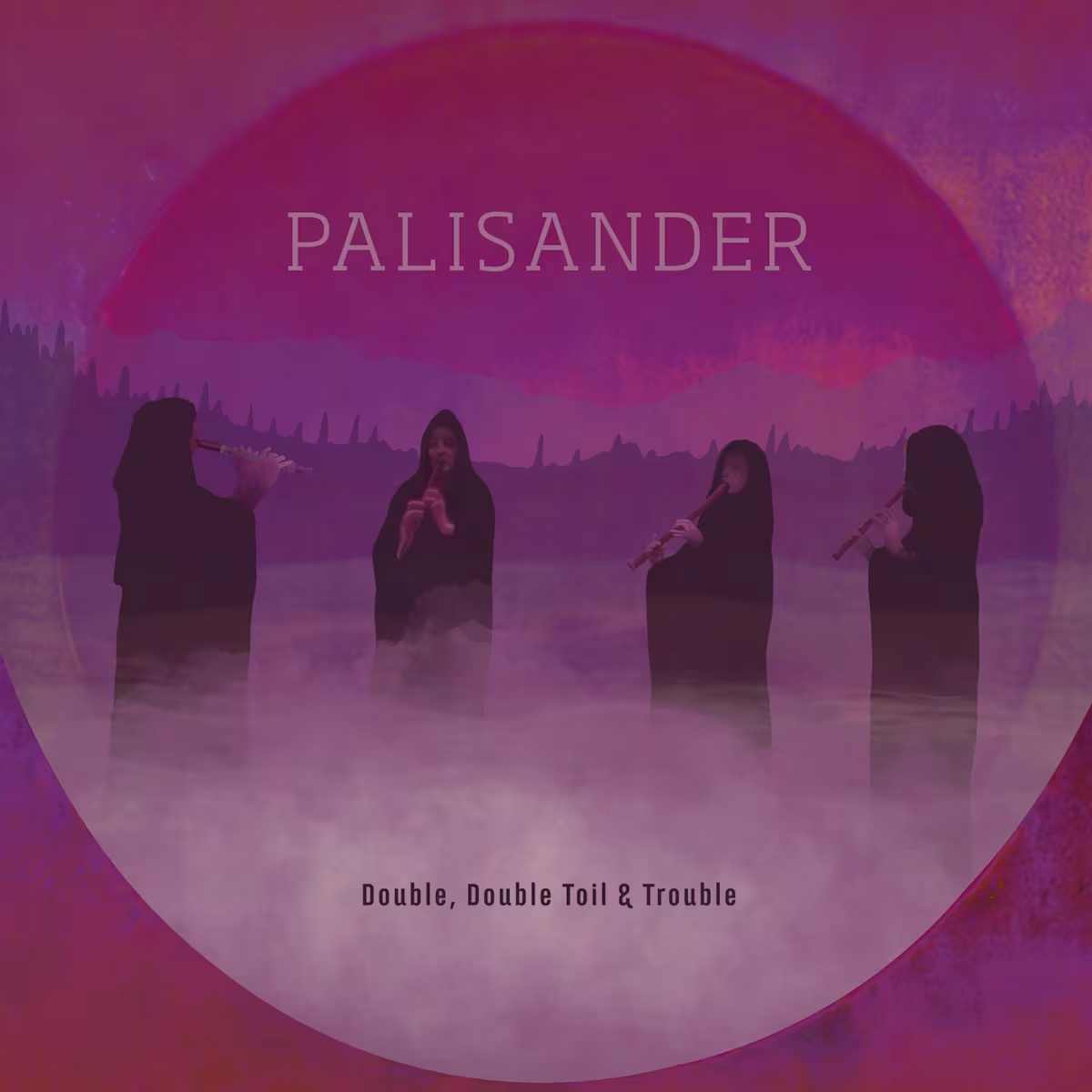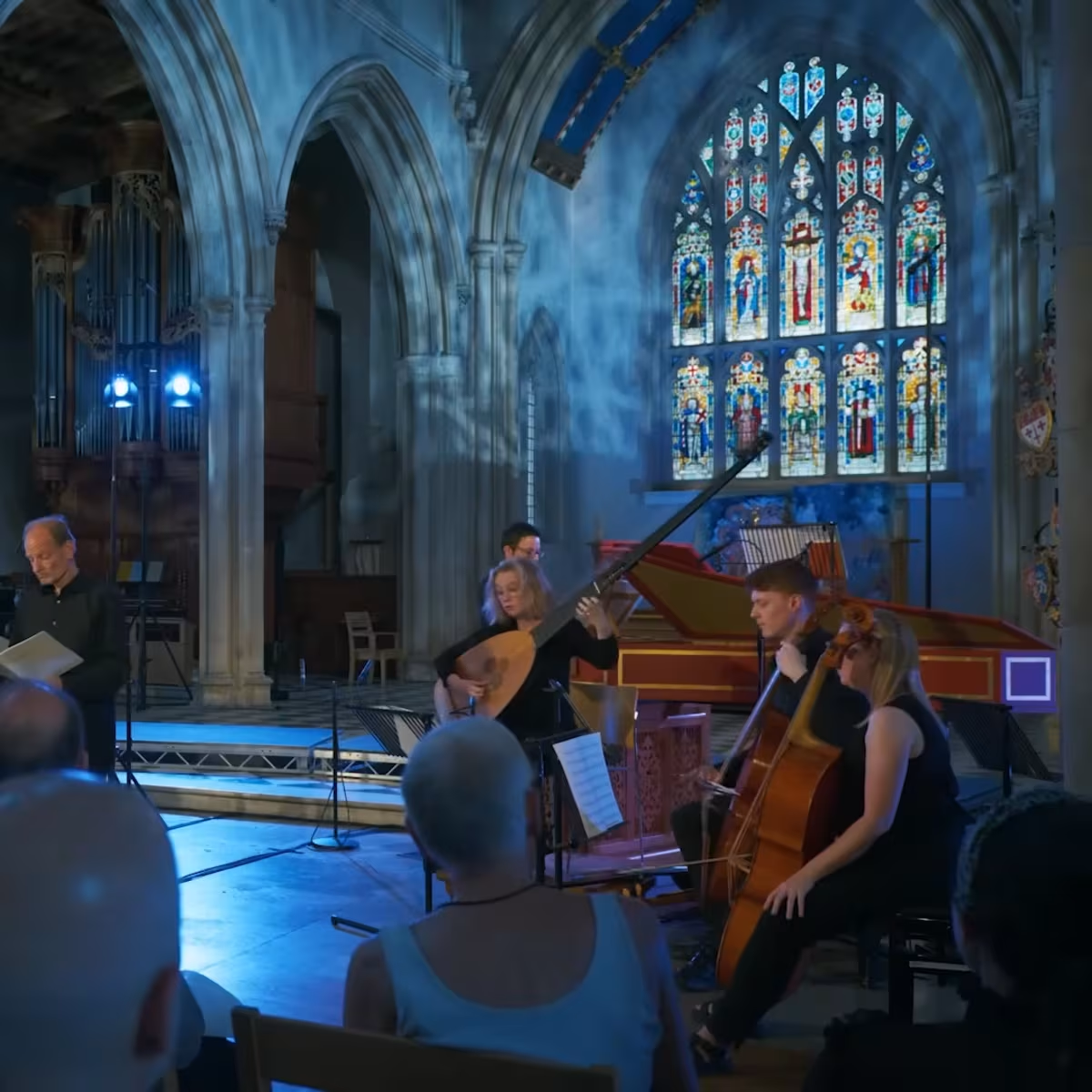Feature
Nardus Williams Introduces...
Women’s Stories from the Ancient World
Share this

In recent years, British soprano Nardus Williams has established herself as an exciting and versatile singer, equally busy on UK and international stages. She will appear twice in the 2024 Proms, hopping between London and Aberdeen for a performance of Handel’s Messiah and a programme she curated with classicist Dame Mary Beard. Slightly out of breath, we managed to catch up with her to find out more.
How did you get into Early Music?
I can’t remember a time when I wasn’t interested in Early Music. Growing up, I would always listen to early music CDs (The King’s Singers’ Madrigal History Tour was a particular favourite); I played (and still play!) the recorder, which perhaps presupposes an enjoyment of Early Music; and I’ve always sung in choirs that perform early music (a favourite in this regard would be the Tomkins services). So performing Early Music now simply feels like the logical extension of a lifelong passion.
Who are your biggest musical influences, mentors or teachers to date?
I’ve always loved the early Academy of Ancient Music recordings under Christopher Hogwood, and all the singers that featured on them. I was fortunate enough to study with one of them, David Thomas. He was a fantastic and supportive teacher and has undoubtedly been a key mentor in my musical journey. Another, whom I would regard as a musical influence, is Emma Kirkby. She is someone I’ve always enjoyed listening to, and for so many works, I consider her recordings to be the gold standard.

Which composers play a big role in your musical life?
Part of the beauty of classical music is the panoply of compositional talent over the past 1000 years (if we consider Hildegard von Bingen as an arbitrary starting point). So it’s naturally something of a challenge to pick one person from the past millennium. But if I had to – it would be Handel!
However, a composer whose music I’ve become increasingly enamoured with over the past few years is Barbara Strozzi. Her success in her own lifetime is often forgotten - she had more secular music in print than any other composer of her era. But more importantly, her songs portray such an incredible, and heartfelt range of emotion, within which there is huge nuance, allied with utterly breath-taking shifts in emotional pitch. Recently, I’ve had the joy of being able to regularly programme her music, and it’s always a pleasure to sing.
Programme planning seems to be quite a passion of yours. We are particularly excited to learn about a programme you devised together with classicist and historian Dame Mary Beard and lutenist Elizabeth Kenny. How did you meet?
Firstly, it has been absolutely incredible to work with Mary Beard on our programme - Women’s Stories from the Ancient World. She’s preeminent in her field, but also has such a compelling way of presenting that attendant knowledge.
We met in the summer of 2023 at Glyndebourne after I spotted her on my pre-show walk, and we were subsequently introduced. Our meeting sparked the idea for a collaboration project, and a couple of weeks later I plucked up the courage to ask her if she would work with me on this, and we’ve been developing it ever since. She’s such an inspiration!

Could you share some insights into the selection process for the repertoire in the programme?
From the beginning it was clear to me that the programme should be centred on women’s stories. So, the first step from my perspective was to research works from the voice and lute repertoire with classical references pertaining to women. Quite often these are passing references to, for example, Venus or Diana, so the next step was to find works that engaged more comprehensively with classical texts, or related more directly to women’s stories.
Having done so - and all the while bouncing ideas off Liz, I sent these initial repertoire ideas over to Mary. Concurrently, Mary was sending over some of her own research on women’s lives in the classical period (which, by the way, was utterly fascinating to read). Following on from this dialogue, certain themes and narratives began to coalesce, at which point thoughts about musical content and dramatic balance could begin. Sometimes the point Mary wanted to make needed a more relevant musical counterpart, and other times properties of the music and its text affected the course taken in her spoken content.
Collaborating and working with Mary Beard must be a unique experience. How has it been working with her?
Perhaps one of the most revealing aspects of seeing Mary work has been the degree of thought that goes into making the whole programme cohesive, in order to have a clear narrative that connects each section, and indeed the wider superstructure. From time to time, one small idea can set off a whole chain of thought, but what may appear spontaneous is in actual fact built on Mary’s lifetime of research and thought about the classical world. I find that our engagement with the classics in classical music is so often superficial and confined to limited tropes, so to see her take these apart has been quite revelatory.
What criteria guided your choice of songs and arias to complement Mary Beard's narratives? How has her expertise influenced your selection and interpretation of the music? How has your musical knowledge influenced her approach?
At one point in our discussions regarding the development of our programme, Mary suggested that we ‘should be going for a judicious mixture of the familiar and the surprising’ - and that is exactly what you will hear. Another guiding thought for me has been that in a programme of ‘Women’s Stories’, we should be choosing from a selection of music written by women composers and women-authored texts. Pragmatically, there are limits to both the amount of music written on classical themes by women, and also surviving texts written by women from the ancient world. Regarding the latter, Mary has done an incredible job of bringing a number of these to light, and I hope we have done the same for the former. It won’t be a surprise to learn that the programme features music by both Barbara Strozzi and Francesca Caccini, so hopefully the context in which they appear will present their work in a new light.
One subject we enjoyed surveying is that of the Lament. It’s such a musically rich area (one of the most well-known baroque arias being Dido’s Lament, for example), and yet there is a tendency to portray the heroine as a victim. In order to do justice to the topic, we will present various sides; a more traditional lament, the aforementioned Dido’s Lament by Purcell; and then a fascinating takedown of the traditional lament, Caccini’s Dov’io credea le mie speranze, a song from her first book Il Primo Libro delle Musiche. This song was written as a parody (albeit not an overtly hilarious one) of Monteverdi’s Lamento d’Arianna; where Monteverdi presents the typical ‘woman as victim’ narrative, Caccini’s ‘Arianna’ is far more reflective.
We hope the overall result of this process will be a programme that shines a light on women’s lives and stories in antiquity, and their echoes in later culture, whilst also questioning a number of our assumptions. It has been such a joy to work with two women I hugely respect and admire - I can’t wait for the first performance!
Women’s Stories from the Ancient World, with soprano Nardus Williams, classicist and historian Mary Beard and lutenist Elizabeth Kenny was performed in August at Snape Maltings, and in September at the BBC Proms in Aberdeen.
Share this
Keep reading

Sisters of polyphony
Laurie Stras uncovers the stories behind the extraordinary Biffoli–Sostegni manuscript, and traces the lives of the nuns who sang from it.

Double, Double Toil & Trouble | Palisander
Palisander’s new album, Double, Double Toil & Trouble, features repertoire spanning 900 years, inspired by the mystical and magical.

Spiritato with Elizabeth Kenny | Music to her Majestie: Odes for the last Stuart
On Queen Anne’s birthday, we share Spiritato and lutenist Elizabeth Kenny’s musical portrayal of the last Stuart and her lifelong patronage of the arts.

